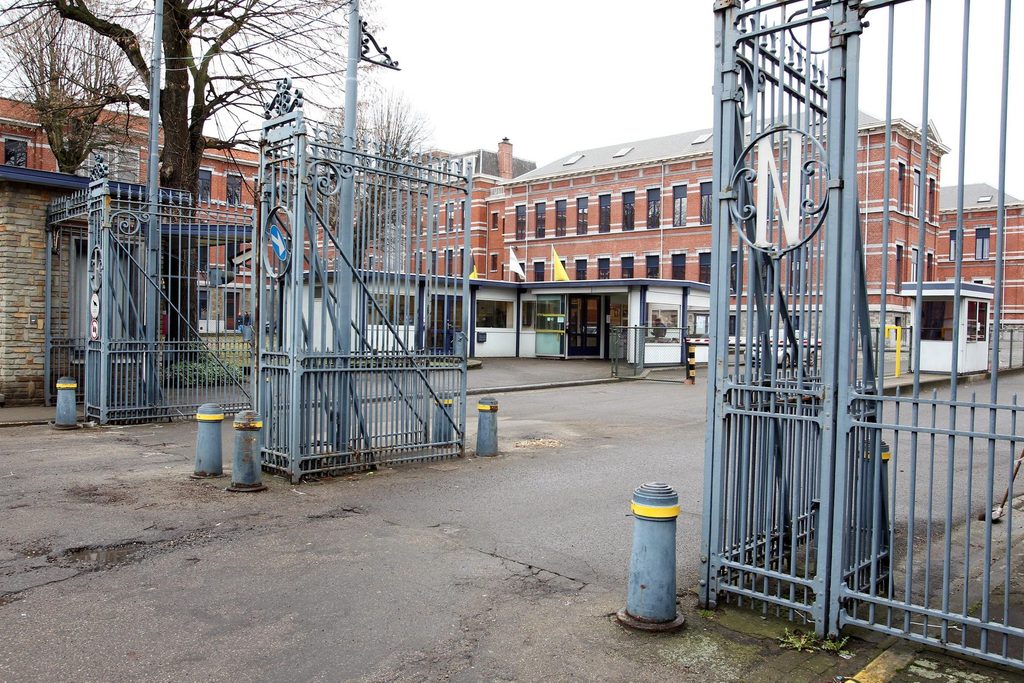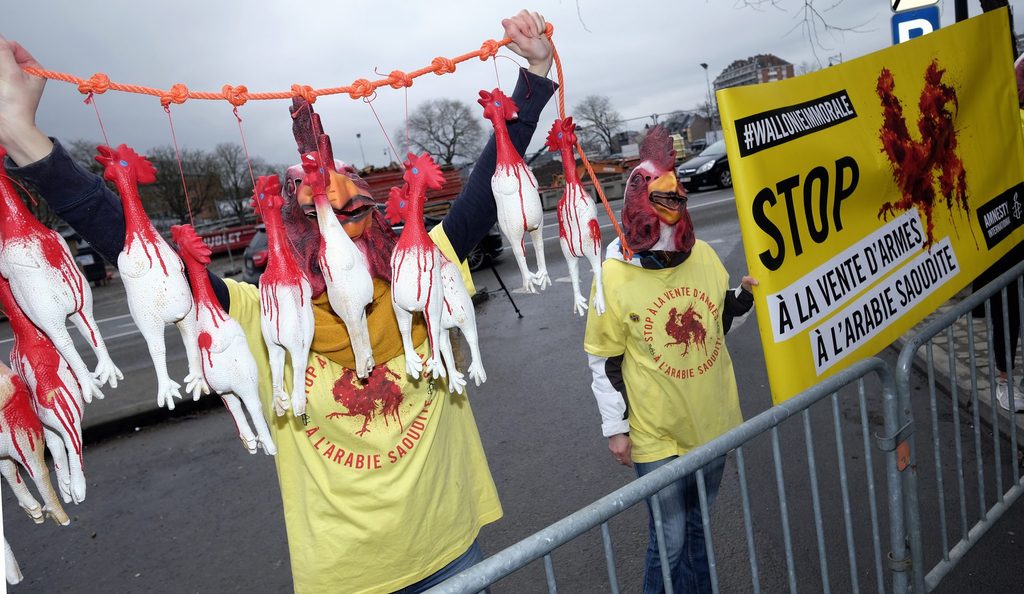While the total volume of Walloon arms exports fell by 60% in 2022, they remain "highly problematic" due to their complicity with human rights violations across the world, Amnesty International officials said on Wednesday.
In 2022, the Walloon arms trade totalled €355.5 million, with the United States and France being the biggest importers.
Compared to 2021, arms sales to Indonesia multiplied by six, according to the Amnesty report. The Indonesian regime is accused of extrajudicial killings in Papua New Guinea and West Papua.
In the latest edition of the Walloon Arms Observatory (WAO) report, human rights groups found that, in 2022, Walloon-made weaponry was also shipped to the United Arab Emirates (UAE), Egypt, Qatar, Turkey, Colombia, Canada, Brazil and Saudi Arabia.
"While arms exports did indeed drop, this doesn't mask the continued irresponsible practices on the part of the arms industry and the Walloon authorities," pointed out François Graas, campaigns and advocacy coordinator for the French-speaking Belgian section of Amnesty International.
"The reduction in exports to Saudi Arabia, following legal action by civil society, should not obscure the fact that Wallonia continues to export arms to destinations that raise serious questions," he added.
Nos frites font un malheur à l'étranger.
Nos armes aussi. Mais parfois dans des pays criminels de guerre. Et tout cela, dans une opacité coupable entretenue par le gouvernement wallon. Notre fritkot en face du #WalGov est là pour le lui rappeler. AGIR👉 https://t.co/xlUqtcINfl pic.twitter.com/d6u9BjlguA — Amnesty Belgique FR ✊ (@amnestybe) June 28, 2023
Tweet translation: "Our chips are a hit abroad. So are our weapons. But sometimes in countries that are war criminals. And all of this with the guilty opacity maintained by the Walloon Government. Our fritkot in front of the #WalGov is there to remind them"
The WAO report paints the picture of an opaque sector where decision-making power is concentrated in the hands of the Walloon Minister-President Elio Di Rupo with scarce accountability. Information reports are regularly turned in late and meetings are closed to the public and civil society.
In one instance, the WAO report recounts a story of media intimidation. RTBF, the Francophone public broadcaster, had prepared two TV reports on Wallonia's arms trade with Saudi Arabia, but they were never televised.
Two anonymous sources told the report's authors that Minister-President Di Rupo and his cabinet had pressured them to stop asking questions about arms exports.
Saudi exports persist
The decline in arms sales stems mainly from the reduction of direct shipments to Saudi Arabia and the discontinued deliveries of John Cockerill gun turrets to the Middle Eastern kingdom, the report notes.
Walloon defence companies, some of which are partly or fully owned by the government, sold over €702,000 worth of weapons to the Saudi regime, which has been accused of committing war crimes in Yemen.
In 2018, the Walloon government had been found to be Saudi Arabia's biggest arms supplier, providing 75% of Riyadh's European-made firearms and raking in €198 million in profits. The Belgian arms industry was shown to have grown exponentially as a result of Saudi contracts.

Credit: Belga / Michel Krakowski
After public pressure, the Walloon Government banned arms sales to the Saudi air forces, while allowing it for other parts of the military.
Several Belgian humanitarian associations have filed a criminal complaint against arms manufacturer FN Herstal over their weapons sales to Saudi Arabia. FN Herstal is 100% owned by Wallonia's government.
The Mecar company is said to have produced ammunition for Egypt, “despite the catastrophic human rights situation in that country”. Three licences have also been granted for exports to the United Arab Emirates in 2021 even though the last actual arms exports to that country date back to 2019.
The report also notes that the high number of exports to France may function as a smokescreen, as it is unclear how many of the weapons sold to France actually stay there. In the past, the WAO has found Belgian tanks that were sold to France to have ended up in Saudi Arabia, for example.
The 2023 WAO report was compiled by Amnesty International and the National Coordination of Action for Peace and Democracy (CNAPD).

